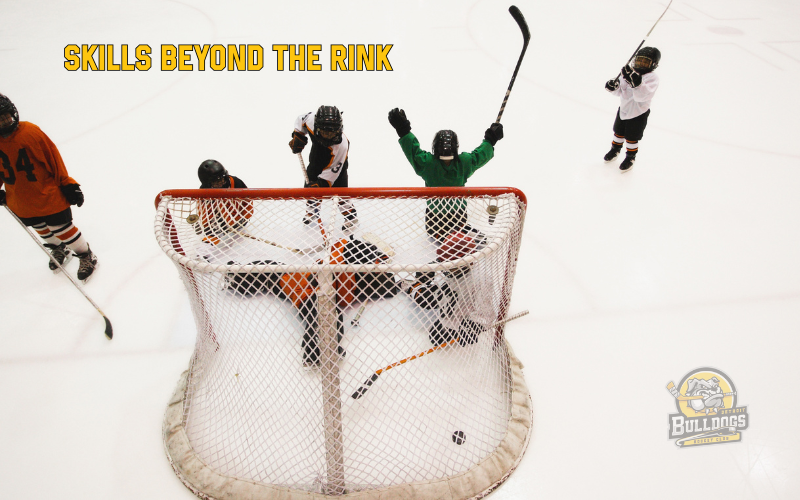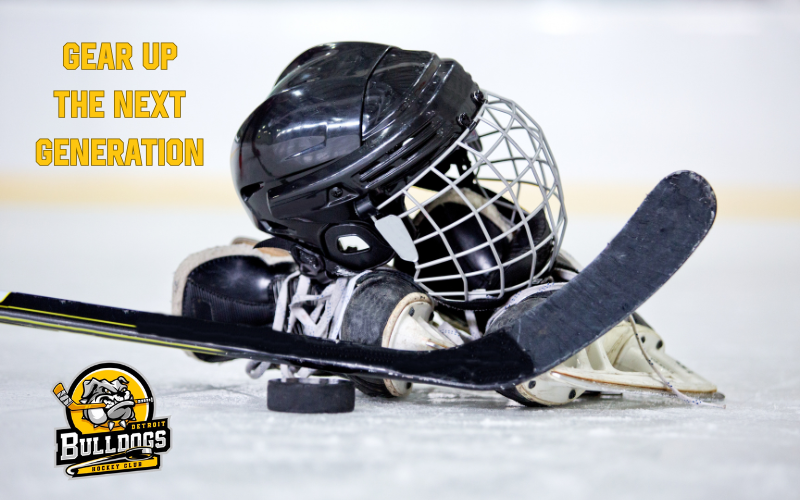
Youth sports are a cornerstone of child development, offering more than just physical activity. Among these sports, hockey stands out not only for its fast pace and excitement but also for its ability to cultivate life skills that benefit young players off the ice. In this blog post, we explore how youth hockey serves as a tool for teaching valuable life lessons and fostering personal growth.
Cultivating Teamwork and Social Skills:
Hockey is a team sport that demands cooperation and communication on the ice. Young players learn to work together towards a common goal, experiencing firsthand how collaboration leads to success. This environment enhances their social interactions, teaching respect for teammates, opponents, and coaches. The camaraderie developed in hockey creates a sense of community and belonging, helping players develop strong interpersonal skills that are essential throughout life.
Enhancing Physical Health:
Participating in youth hockey provides numerous physical benefits. It improves cardiovascular health, strengthens muscles, and enhances flexibility and balance. Regular practice and games also boost hand-eye coordination and reaction times. Beyond these immediate benefits, hockey instills a habit of regular physical activity, encouraging a healthy lifestyle that can prevent future health issues.
Developing Discipline and Work Ethic:
Youth hockey programs are structured, with scheduled practices, games, and tournaments that require commitment and punctuality. Young players learn the importance of discipline, hard work, and preparation as they strive to improve their skills and help their team. These qualities translate directly to academic success and future professional endeavors, where discipline and a strong work ethic are highly valued.
Learning to Manage Success and Failure:
Hockey is a fast-paced game where the tide can turn quickly, teaching players to handle both victories and defeats with grace. This sport offers critical lessons in resilience, as players learn to bounce back from losses and continue working towards their goals. Understanding how to deal with failure and learn from mistakes is a vital skill that helps children navigate challenges throughout their lives.
Supporting Mental Health:
Engaging in youth hockey can significantly impact mental well-being. The physical activity involved helps reduce stress and anxiety, while scoring a goal or making a key play can boost self-esteem and confidence. Moreover, the team environment provides emotional support, allowing children to express themselves and receive encouragement from peers and coaches.
Encouraging Lifelong Participation in Sports:
Starting hockey at a young age can ignite a lifelong passion for the sport and for physical fitness in general. Many young players continue to play hockey as adults, enjoying the health benefits and social connections it provides. Promoting a lasting engagement with sports can lead to a healthier, more active lifestyle well into adulthood.
Youth hockey is more than just a game; it’s a powerful development tool that equips young individuals with the skills necessary for personal and social success. By supporting youth hockey programs, communities invest in the holistic development of their children, ensuring they grow into well-rounded, healthy adults. Let’s champion these young athletes by providing them with opportunities to play, learn, and grow through hockey.




